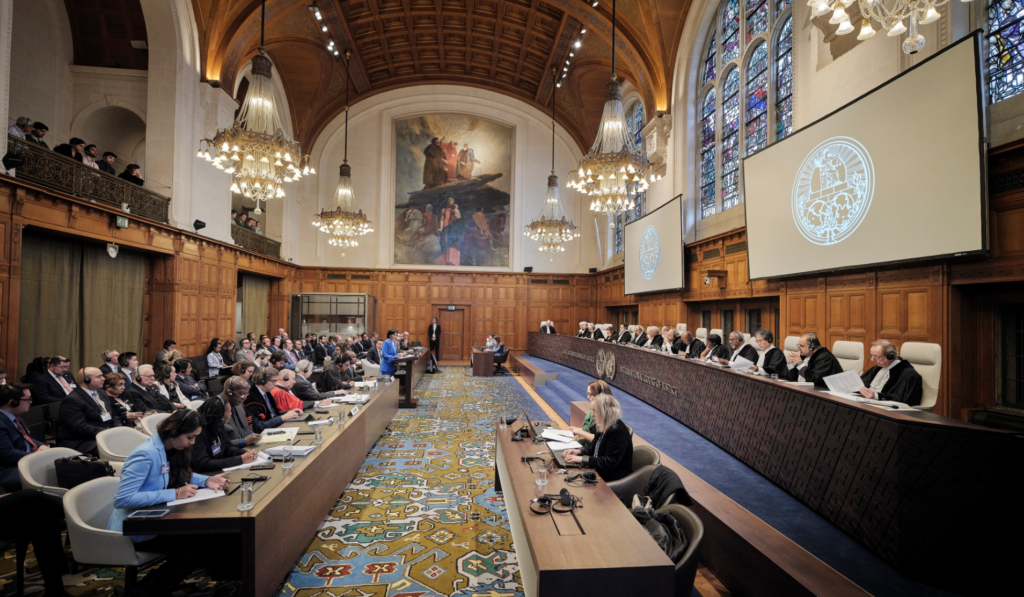
Venezuela’s Vice President Delcy Rodriguez has told the International Court of Justice (ICJ) that with or without a third-party intervention, its planned referendum on the Essequibo will go ahead, despite strong objections from Guyana.
Guyana has rejected the planned referendum, which seeks the support of the Venezuelan public to reject the ICJ hearing and to make Guyana’s Essequibo region a new Venezuelan state.
On Tuesday, Guyana’s team presented maps, charts, graphs, photos and videos to the Court to demonstrate that Venezuela is flexing its military muscles at its border close to Guyana.
The Court heard from Guyana that Venezuela is threatening the country and the region’s peace and security and might be preparing for military action against Guyana.
However, the Venezuelan Vice President ruled out any annexation or invasion of Guyana’s territory and said that the referendum is purely a domestic matter which Guyana, and by extension the ICJ should not interfere in.
“Nothing will prevent the referendum schedule the 03rd of December from being held. Today, we are going to demonstrate that Guyana’s request is unprecedented and unusual. It creates danger for the rest of the international community, in particular for those states which have constitutional formula for participating similar to those of Venezuela,” Ms Rodriguez said.
The Venezuelan Vice President said her country still does not accept the jurisdiction of the International Court to hear and determine even the substantive case, but she said Venezuela has still decided to participate in the proceedings before the Court to defend the country’s independence.
The Vice President told the Court that she believes that Guyana is in breach of the Geneva Agreement by approaching the Court to deal with issues that it has with Venezuela. The Geneva agreement empowers the United Nations Secretary General to refer the matter to the ICJ for a final settlement of the controversy.
Rodriguez, even advanced Venezuela’s historical position that it prefers to have the matter settled through dialogue and negotiations, and is not in favour of the judicial route.

“Without prejudice to our position and doctrine on jurisdiction, we come before this court to defend independence, sovereignty, and self-determination as the inalienable rights of our nation. We are here because Guyana has not only decided to abandon and transgress the Geneva agreement but now intends to flout the international order and promote a change in the Venezuelan political system through an interventionist and audacious action that seeks to instrumentalist the courts against Venezuela.” Ms. Rodriguez said.
She complained that Guyana continues to take unprecedented steps to have the matter resolved, although Guyana has only approached the International Court.
“Venezuela firmly rejects yesterday’s statements which through crude and childish manipulation seek to stigmatize the historical addition and legal doctrine which in no way represents an exceptional situation and which is shared by the majority of the international community,” the Venezuelan Vice President told the ICJ.
Venezuela’s legal representative told the ICJ that Venezuela’s planned referendum will not annex the Essequibo, but it is to get Citizens involvement in the process.
The International Court of Justice will now set a date to rule on whether it will de-legitimize some of the questions in Venezuela’s referendum as requested by Guyana.


















You must be logged in to post a comment Login